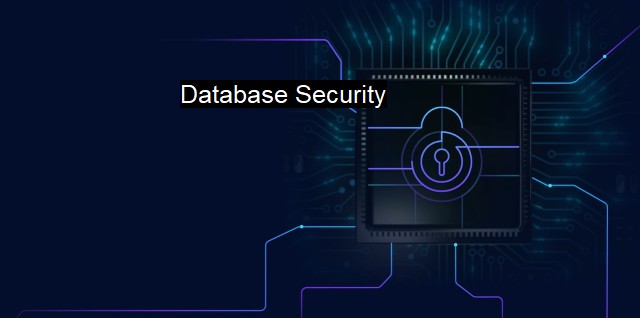What is Database Security?
The Critical Role of Database Security in Mitigating Unauthorized Access and Data Corruption
Database Security encompasses an array of measures, protocols, and tools used to protect a database from compromises of any kind. it is a significant use of preventative or protective action designed to protect a database from threats, damage, loss, or compromise. This topic is an essential aspect of today’s Information Technology-aligned society, considering the soaring need for secure, up-to-the-minute, and dependable data.In cybersecurity and antivirus contexts, Database Security takes on more profound significance. It becomes directly intertwined with these processes, creating layers and mechanisms to direct a database clear from potential threats from malware or cyberattacks. Understanding its objectives, methods, challenges, and restrictive measures are vital to successfully maintaining a robust and secure database.
The fundamentals of Database Security comprise data integrity, confidentiality, and availability, often abbreviated to CIA. 'Integrity' ensures that the entirety of data is accurate, consistent, and reliable during its entire lifecycle. 'Confidentiality' encompasses the aspect of access control, with mechanisms in place to limit database access only to authorized personnel. The ‘availability’ attribute relates to ensuring reliable database access for authorized users at all times.
Database Security includes numerous methods, from encryption to backup. Encryption is a method where data is coded and can only be decoded or decrypted by those possessing the necessary encryption key. The backing up of databases, while often overlooked, is a crucial non-technical aspect of Database Security. This process enables the swift recovery of data in the event of loss or damage.
Then comes account access and user privilege management, a direct and effective form of security enabling control over which users can access data. This element concludes by designating tasks to users based on their level of clearance. Auditing and event tracking, to some extent, complements this by keeping stringent logs of database activities and movements, including any changes made.
Strict network security can act as a front gate minimising unauthorised incoming network access to the database. Firewalls create a secure layer between the database and potential threats from unsecured networks. Added to this are Intrusion Detection and Prevention Systems (IDS/IPS), which detect possible threats and take preventative action independent of human intervention.
In the wider context of antivirus contexts, Database Security uses established software programs to offer real-time protection against potential threats like viruses, worms, spyware, ransomware, and trojans, and capacity-wise, these software systems provide entry-point, behavioural, and heuristic detection, examining code script and packet attributes to decide whether they are a security risk or not.
Every layer of Database Security confronts specific challenges and crucial demands. While the hash encryption provides an extra layer of encrypted security, it's not impenetrable and often needs the regular introduction of

Database Security FAQs
What is database security and why is it important?
Database security refers to the measures and techniques used to protect the data stored in a database from unauthorized access or misuse. It is essential because databases often contain sensitive and confidential information that can be compromised if proper security measures are not in place.What are some common threats to database security?
There are several common threats to database security, including SQL injection attacks, unauthorized access, malware, phishing attacks, and human error.What are some best practices for securing a database?
Some best practices for securing a database include using strong authentication and access control mechanisms, regularly testing for vulnerabilities and applying patches, encrypting sensitive data, implementing user activity monitoring, and enforcing strict data backup and recovery procedures.How can antivirus software help with database security?
Antivirus software can help with database security by detecting and removing malware that may compromise the integrity of the database or steal sensitive information. It can also scan files and applications for potential threats, and offer real-time protection against new and emerging threats. However, antivirus software should not be the only security measure in place for database security.| | A | | | B | | | C | | | D | | | E | | | F | | | G | | | H | | | I | | | J | | | K | | | L | | | M | |
| | N | | | O | | | P | | | Q | | | R | | | S | | | T | | | U | | | V | | | W | | | X | | | Y | | | Z | |
| | 1 | | | 2 | | | 3 | | | 4 | | | 7 | | | 8 | | |||||||